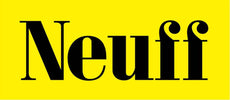
Athletics Training Plans for the Competition Season
By Ben Hawkes
With winter training in full swing, indoors gearing up, and the summer season on the horizon, training will be changing for a lot of athletes as we move through the competition season.

THE TRAINING PROCESS FOR YOUNG ATHLETES
Almost everything related to physical preparation & development planning boils down to the General Adaptation Syndrome (GAS) and how we can best use it to our advantage.
 Cunanan et al. (2018). The General Adaptation Syndrome: A Foundation for the Concept of Periodisation
Cunanan et al. (2018). The General Adaptation Syndrome: A Foundation for the Concept of Periodisation
With young athletes, detailed periodisation is less of an issue. We want to focus more on learning how an athlete responds to training within the context of the GAS, and how we can structure their training around their maturation, sporting commitments and other aspects of life.
HOW YOUNG ATHLETES IMPROVE THEIR PERFORMANCE

Over time, we can find out how different athletes respond to training stimulus. Some will be slower to recover, and some will be faster. It’s not an issue which end of the spectrum an athlete lies on. What’s important is just knowing. With that knowledge, you can better predict training responses and better plan your training as you lead to the competition season.
HOW CAN YOU WORK IT OUT?

Talk to your athlete. Ask them how they feel either a day or two days after each session (or have them fill out a 1-minute questionnaire every day) and note down their responses. Over time, you’ll have a huge library of information about how each athlete responds to different types of sessions.
Note down how they perform in subsequent sessions. This is more objective and has less room for fudging - if they’re beat up from previous sessions, you’ll know. Make a note, and compare over time.
HOW CAN YOU USE IT?

When you know what sessions give an athlete a positive response, you know what type of work will elicit positive reactions in the build-up to the competition. Typically athletes will enjoy these sessions more, and happiness generally leads to high(er) performance.
PREPARING YOUNG ATHLETES FOR COMPETITIONS

You’ve got to plan in advance - knowing when your most important meets are will allow you to work backwards from that date to make sure you’re ticking all your boxes. It enables you to identify other meets you can use to prepare for a championship and gives you a chance to plan training and competition around other life events and commitments.
Knowing the path you’re taking through the season in advance reduces stress for both coaches and athletes and allows for more consistent preparations with less unexpected deviations. Key points for planning an effective season include:
- Find the balance between under- and over-competing. I think I over-competed at small meets where I knew everyone and under competed at higher level meets with less familiarity, and that’s bled into my more recent (disappointing) performances at high-level competitions. Pick your battles, but get the experience you need. Fortis fortuna adiuvat.
- Factor in the travel. Both in terms of time and budget, travel can be a nightmare. Make sure you don’t create a stressor by rushing to a meet or travelling at stupid o’clock and make sure you’re not putting yourself out. Make the right decisions for you and your athletes - but remember, you don’t have to be at every meet. Athletes need to be able to handle themselves!
- You don’t need to come off training all that much. Especially for young athletes, a huge taper down of training will not do much for performance. The training effect and learning induced by not tapering massively will be more beneficial in the long run than a medal at an age group championship. Also, if you taper badly, it might make the performance worse anyway. I learned this one the hard way, more than once.
Hopefully, this helps you navigate the minefield of the competition season with a little more control and a little more purpose. Remember - experience is the ultimate teacher. Get out there, chase down your goals and have fun doing it.


Leave a comment